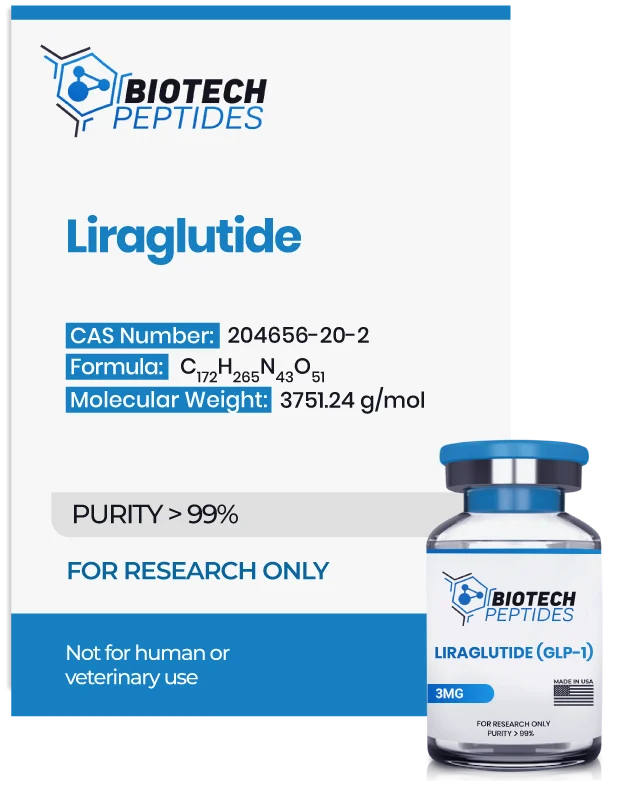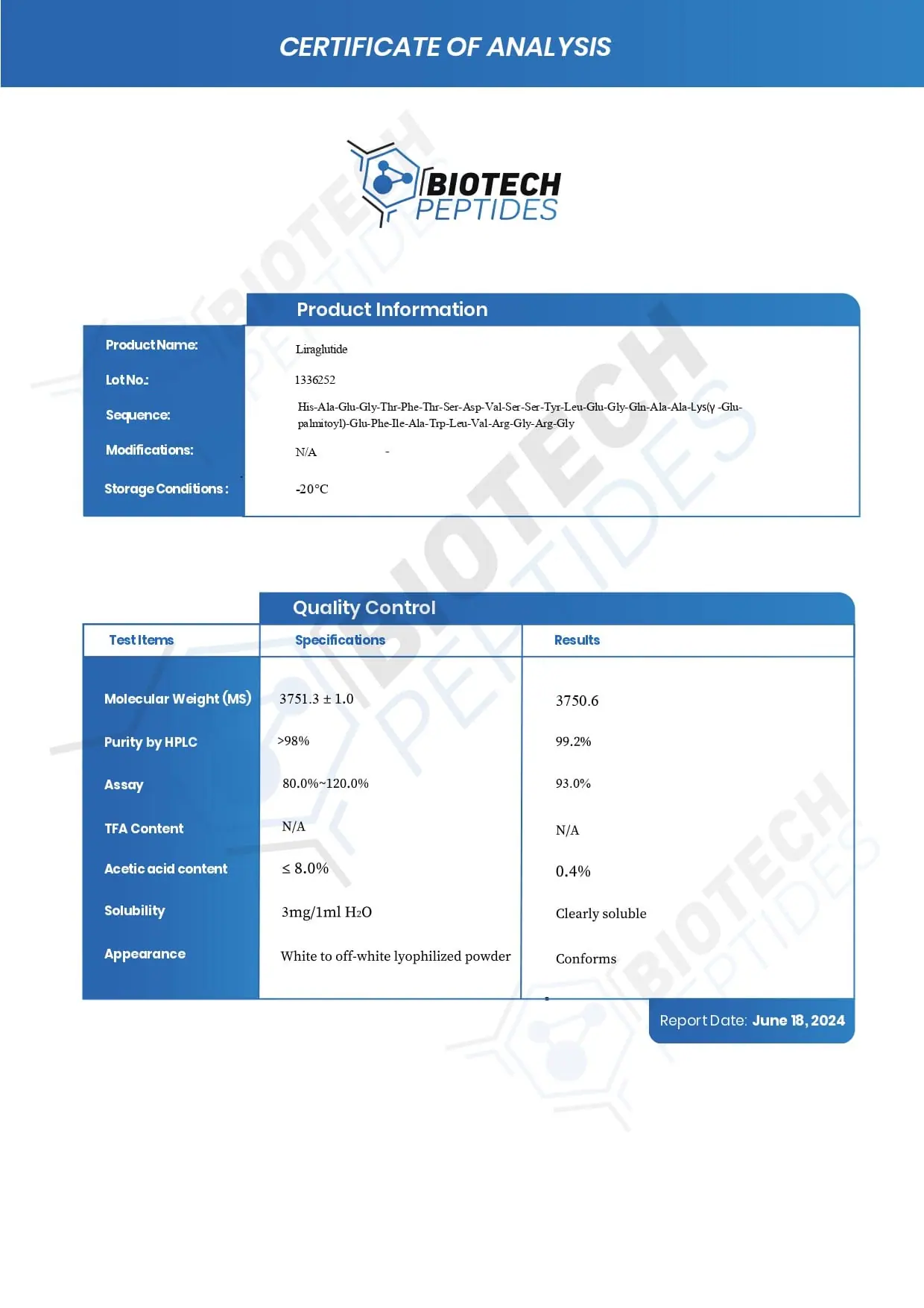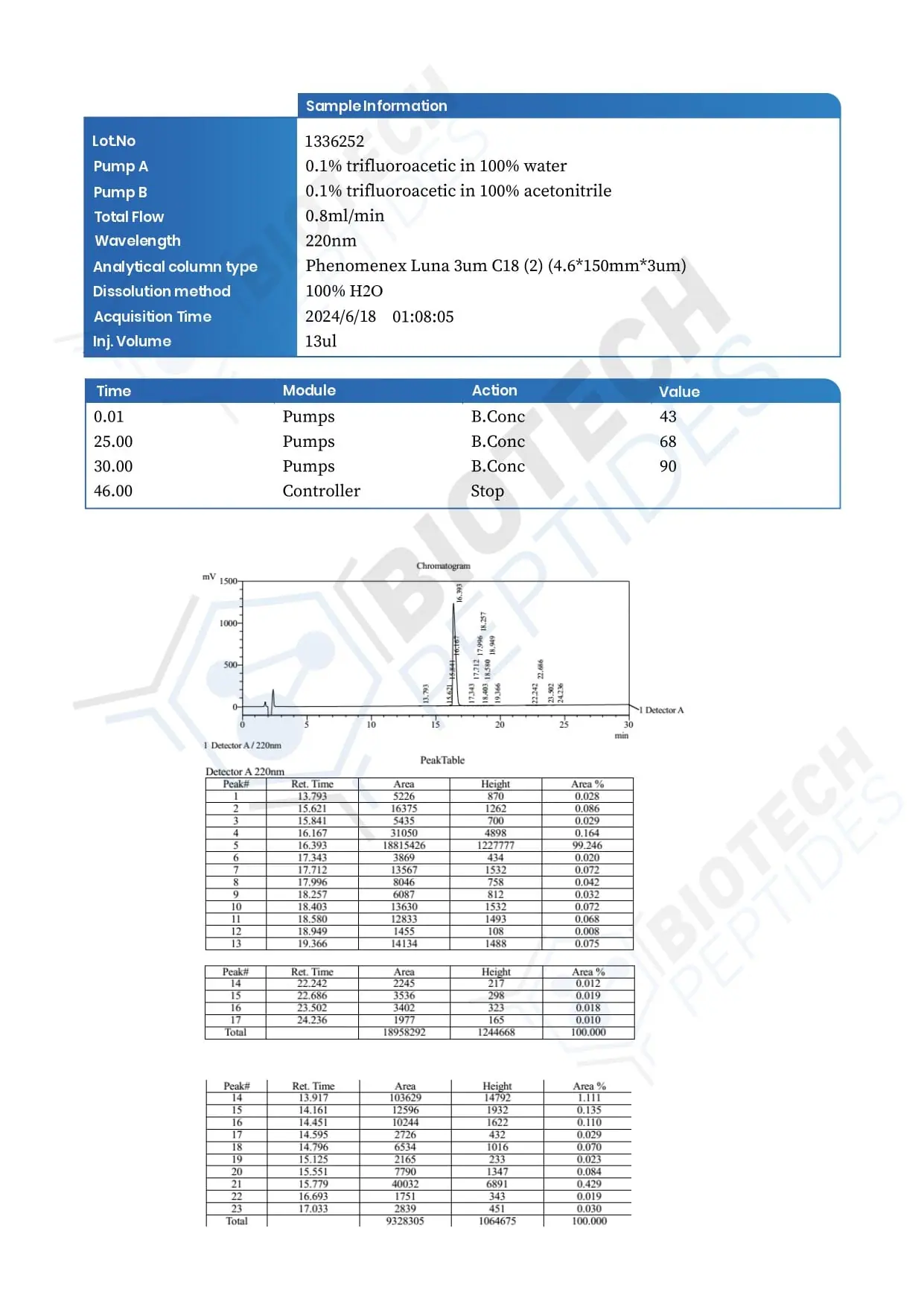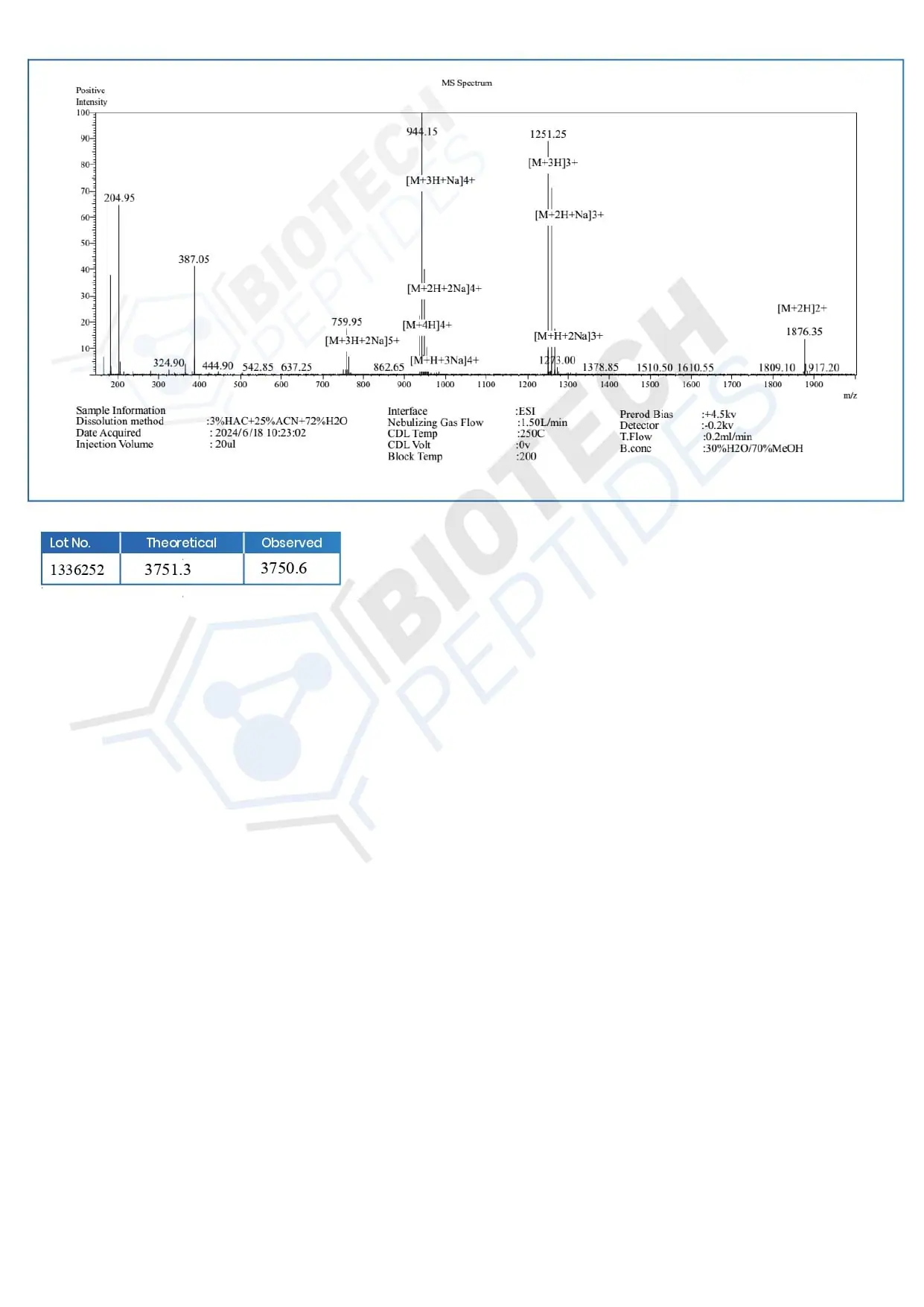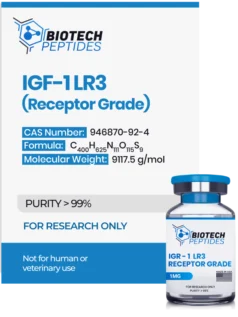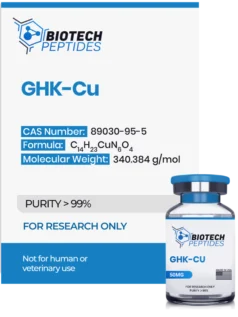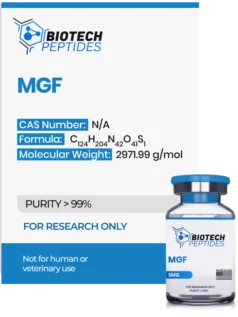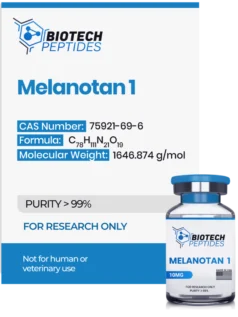Liraglutide (3mg)
$45.00
Liraglutide peptides are Synthesized and Lyophilized in the USA.
Discount per Quantity
| Quantity | 5 - 9 | 10 + |
|---|---|---|
| Discount | 5% | 10% |
| Price | $42.75 | $40.50 |
Orders over $200 receive:
FREE - USPS priority shipping
FREE - USPS priority shipping
Disclaimer: The products mentioned are not intended for human or animal consumption. Research chemicals are intended solely for laboratory experimentation and/or in-vitro testing. Bodily introduction of any sort is strictly prohibited by law. All purchases are limited to licensed researchers and/or qualified professionals. All information shared in this article is for educational purposes only.
This product is strictly for research/laboratory use only. Human or animal use and/or consumption is strictly prohibited by law. Only qualified and licensed professionals should handle these products. Any information found on Biotech Peptides is strictly for educational purposes only. Refer to our terms and conditions for more details.

